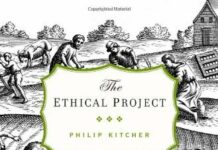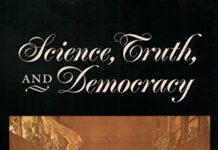
Ebook Info
- Published: 1983
- Number of pages: 213 pages
- Format: PDF
- File Size: 6.43 MB
- Authors: Philip Kitcher
Description
Abusing Science is a manual for intellectual self-defense, the most complete available for presenting the case against Creationist pseudo-science. It is also a lucid exposition of the nature and methods of genuine science. The book begins with a concise introduction to evolutionary theory for non-scientists and closes with a rebuttal of the charge that this theory undermines religious and moral values. It will astonish many readers that this case must still be made in the 1980s, but since it must, Philip Kitcher makes it irresistibly and forcefully.Not long ago, a federal court struck down an Arkansas law requiring that “scientific” Creationism be taught in high school science classes. Contemporary Creationists may have lost one legal battle, but their cause continues to thrive. Their efforts are directed not only at state legislatures but at local school boards and textbook publishers. As Kitcher argues in this rigorous but highly readable book, the integrity of science is under attack. The methods of inquiry used in evolutionary biology are those which are used throughout the sciences. Moreover, modern biology is intertwined with other fields of science—physics, chemistry, astronomy, and geology. Creationists hope to persuade the public that education in science should be torn apart to make room for a literal reading of Genesis.Abusing Science refutes the popular complaint that the scientific establishment is dogmatic and intolerant, denying “academic freedom” to the unorthodox. It examines Creationist claims seriously and systematically, one by one, showing clearly just why they are at best misguided, at worst ludicrous.
User’s Reviews
Editorial Reviews: Review A marvelously lucid summary of the evidence for evolution and the overwhelming case against its enemies…. As a philosopher concerned with the way science operates, Kitcher is good at showing how creationists distort Karl Popper’s views on scientific method, and how they misuse such books as Thomas Kuhn’s Structure of Scientific Revolutions. He is equally skillful at showing how creationists persist in quoting out of context Stephen Jay Gould and other ‘punctuationists’…—Martin Gardner, Discover—Such outfits as the Moral Majority and the Institute for Creation Research seem to have inherited the hot air waves, if not the wind. And this has alarmed Philip Kitcher, a philosopher of science at the University of Vermont, enough to give us this thoughtful and witty attack on ‘scientific creationism’…Dr. Kitcher has mixed a great deal of cold logic and history into his case, thereby creating a book that is as valuable as it is fun to read for scientists and nonscientists alike.—James P. Sterba, The New York Times—With his book, Abusing Science, Kitcher…takes his place beside such eloquent champions of Darwin’s theory as Thomas Huxley and Clarence Darrow.—Jill Sapinsley Mooney, San Francisco Chronicle— About the Author Philip Kitcher is Professor of Philosophy at the University of Minnesota, and Director of its Center for the Philosophy of Science. Kitcher is the author of a searching book on “Scientific” Creationism, Abusing Science, published by The MIT Press in 1982.
Reviews from Amazon users which were colected at the time this book was published on the website:
⭐Philip Kitcher’s “Abusing Science” is one of the classic works in the evolution/creationism debate. Now outdated, having been first published in 1982, it remains a fundamental source in debunking the arguments of creationists. It is not a history of the debate, although elements of historical analysis are present; it is not a balanced discussion of the debate in which both sides are evenly represented, although he sometimes offers the creationist perspective; it is not a primer for debate, although it may profitably be read for that purpose.”Abusing Science: The Case Against Creationism” is essentially an overview of the major elements of the controversy and a well-researched, ably-organized, and effectively argued polemic that will be helpful to those accepting the concept of evolution, even as it points up the myriad weaknesses of the concept of creationism. There is nothing in this book, because of its publication more than 25-years ago there is nothing on the latest iteration of the creationist onslaught, “intelligent design.” Neither it, nor the efforts of William A. Dembski, Michael J. Behe, and Philip E. Johnson are even mentioned.Notwithstanding its datedness in the on-going war over scientific knowledge, and whether it will be accepted or trashed by the creationists, “Abusing Science” continues to make a contribution as a useful brief introduction to the origins and arguments of creationism and the scientific responses to those religious (but certainly not scientific) ideas.
⭐This supposed philosopher of science has a more distorted view of science than the creationists he criticizes. Science is a pragmatic means to solve problems. If one could prove by falsifiable theory through parameter controlled repeatable experiments that astrology or clairvoyance works, they would become sciences. Scientism is as much religion as any religion.
⭐”Abusing Science” is a simple, straightforward, and yet deep and lucid work. Kitcher is a philosopher of science, and philosophers have the unfortunate tradition of being bad writers–not Kitcher. The book flows beautifully, is very well organized, and exhausts the topics it purports to tackle. The refutation of classic creationist arguments (Henry Morris, the Institute for Creation Research, the Moral Majority, etc.) is without mercy, and yet Kitcher never falls in the trap of claiming the moral or otherwise absolute superiority of science. His goal is merely to show that whatever it is, creationism is not science; it may have its own merits (not discussed herein), but it has none as a scientific discipline.Chapter 1 provides a solid, basic background in genetics and evolutionary biology for the layman. Without these basic concepts and terminology, the rest of the book would not be as readable. Chapter 2 explains simply and lucidly what science is and what the evolutionary theory is all about. It is the most informative, key chapter of the book. Chapters 3 and 4 debunk creationists’ critiques and faulty assumptions about evolutionary theory in good detail, showing how flawed their reasoning is. Chapter 5 expounds the various types of creationism extant and their (indeed very limited) propositive claims. Chapters 6 and 7, finally, argue against “equal time” for creationism and evolutionary theory in high school science classes, and why evolution is not synonymous of atheism and immorality. The final chapter is written in cooperation with Kantian scholar Patricia Kitcher.The reader needs to keep one key fact in mind: this book was written and published in 1982. So there are several things it does NOT include.*** Intelligent design. There is no reference to ID whatsoever. This was before Johnson, Behe, Dembski, and others. Needless to say, ID is merely creationism in another dress, so most of Kitcher’s objections will (retrospectively) apply to ID as well.*** Dawkins’ contributions to evolutionary biology. “The Selfish Gene” had already been written, but Kitcher does not discuss gene selection vs. organism selection, nor of sexual selection.*** Gould’s contributions. Punctuated equilibrium was already there, too, but Kitcher does not discuss it at length, probably because creationists did not take much issue with it before the late 80s.*** The Human Genome Project. It had not even started back then.*** Evolutionary psychology. Kitcher does hint at it in the final chapter, but this was a budding field then, and his assumptions about morality could be revised in the light of it (although they’re still generally on target).Finally, my only issue with this book is the treatment of theological issues in the last chapter. Kitcher argues in favor of a reconciliation of science and religion, that is, that a Darwinian can be a Christian–just not a fundamentalist, literal-reading-of-the-Bible one. However, there are many more issues that make evolutionary theory incompatible with even mainstream and watered-down Christianity, primarily the fact that religion would have to revert to sterile deism if it were to survive at all. Kitcher does not focus on these issues, but after all, it was never the scope of his book to do so. For more complete discussions of that issues, there are other texts (Haught, Miller, etc.)Overall, “Abusing Science” is an excellent refutation of classic, old-school creationism and a GREAT starting point for research in the modern evolution-ID debate.
⭐In Chapter 1, the author delves into a discussion on genes and chromosomes which is too technical for me. Besides, there is nothing in that chapter which a Creationist wouldn’t stipulate.In Chapters 2 and 3, the author philosophizes. Those chapters did not seem helpful because most Creationists are unable to understand anything but short and concrete answers.In Chapter 4, though, the book really starts getting good. Here, he discusses the usual nonsense over thermodynamics, mutations, transitional fossils, and anamolous footprints. Chapter 5 discusses flood geology, Creationist kinds, and macro- micro-evolution foolishness. Chapter 6 discusses evolution in the school, Creationist degrees real and bogus, and out-of-context quotes. Here is something which one can use against Creationists.I didn’t like the last chapter so well. The author and his wife, who co-authored this chapter, tell us that there is no proof that the Bible is not necessarily right and that Evolution is not amoral. I alrady knew that the Bible is not necessarily right, and they could have said more about animal instincts.
Keywords
Free Download Abusing Science: The Case Against Creationism in PDF format
Abusing Science: The Case Against Creationism PDF Free Download
Download Abusing Science: The Case Against Creationism 1983 PDF Free
Abusing Science: The Case Against Creationism 1983 PDF Free Download
Download Abusing Science: The Case Against Creationism PDF
Free Download Ebook Abusing Science: The Case Against Creationism





